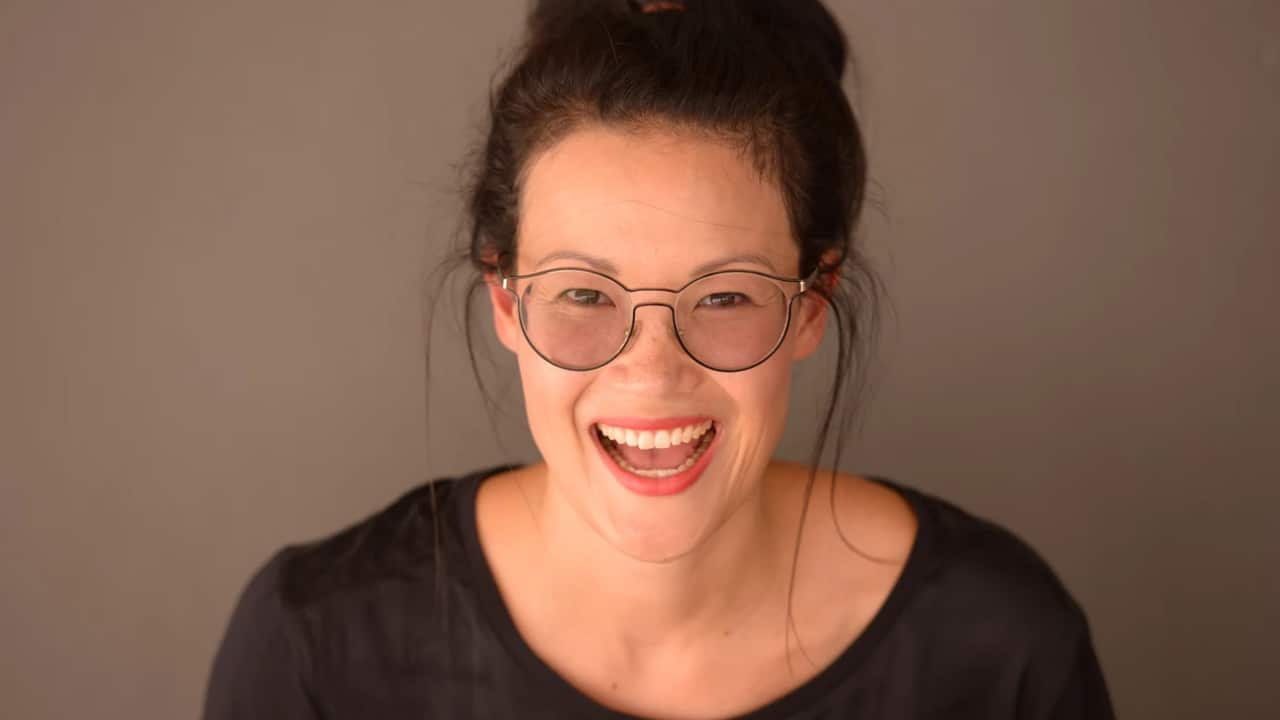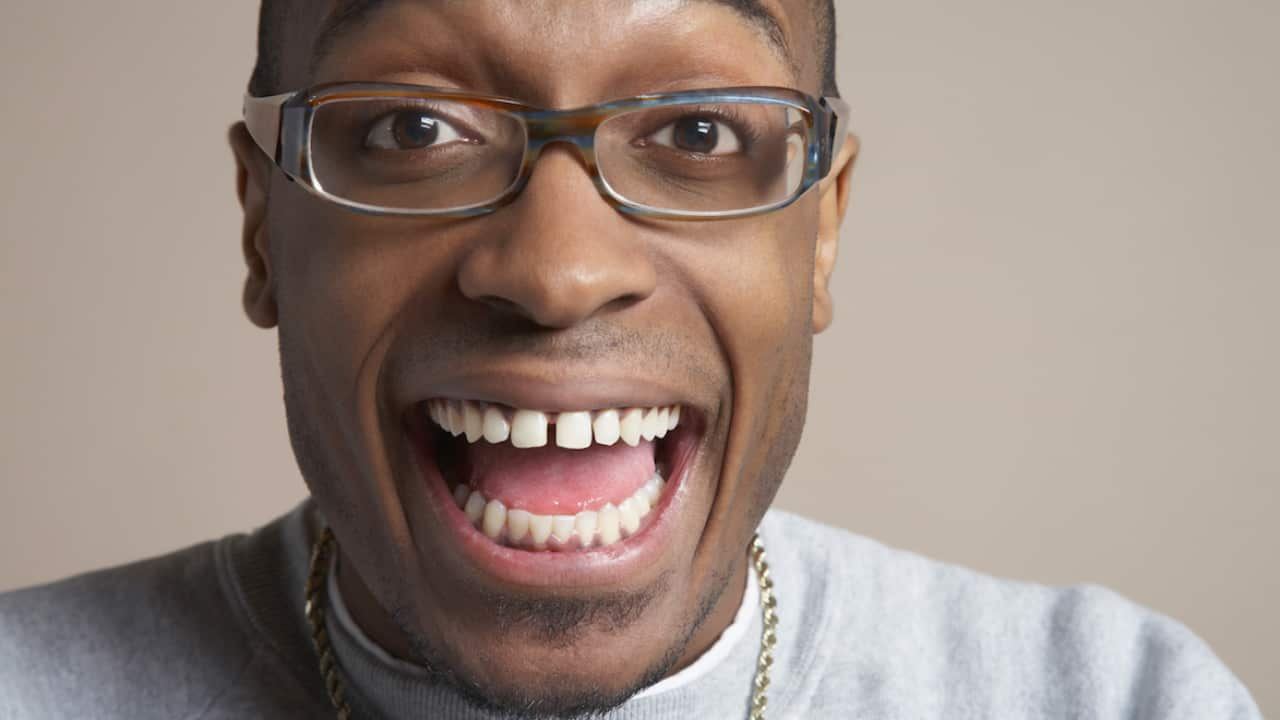Is Australia ready to talk about race yet? Or are we still doing that thing where we pretend it doesn’t exist and everything is fine. After all, there are Asian people on MasterChef! Of course, racism is fixed, my deepest apologies.
Conversations around race are hard. Yes, they are! But the more we talk about it the more people will have to listen, which is why I often address race and identity in my stand-up comedy – lots of POC comedians do, which is risky because it can be a divisive subject matter. It can make an audience, which in Australia is predominantly white, really uncomfortable (or guilty). #notallaudiences. Please come to my shows.
I’ve been doing stand-up solidly for about three to four years several times a week now. I’ve told the same jokes night after night to different audiences and the reactions can be very different. I’ve still got a lot to learn, and sometimes I’m to blame for the reactions – an off night or a stumble over words, maybe a cute puppy in the crowd to contend with – but there are definitely some patterns I’ve noticed with talking about race to Australian audiences.
I think it’s important to make jokes about white people so white people can see their dominant culture is actually a culture.
A glaringly obvious one is white audiences don’t like it when you refer to them as “white people” – it seems to be jarring – even though I make a point of explaining my mum’s white and some of my best cars have been white. RIP 1998 Nissan Pulsar.
I’ve found I can joke about my Asian heritage but if I say a joke about my boyfriend’s “white culture” it’s a hit (with the ethnics) and miss (with the white people). In one joke I refer to my boyfriend loving Ikea because he’s the white one and aspirational homewares and eating shitty food is his culture.
And I love watching the difference in audience reaction with this joke. I had a crowd where a table of Greek Australians laughed in front of me and next to them the table of white Australians felt somewhat unsure – their arms were crossed and they didn’t really know how to react.
Is it okay to make jokes about white people? Yes, of course. I think it’s important to make jokes about white people so white people can see their dominant culture is actually a culture. White people in Australia have very little experience being the object of racial jokes because they are seen as ‘normal’. For POC, it’s a way of pushing back against racial stereotypes and is technically punching up – it’s why LGBTIQ people can make fun of straight people and why women can make fun of men.
For POC, it’s a way of pushing back against racial stereotypes and is technically punching up – it’s why LGBTIQ people can make fun of straight people and why women can make fun of men.
Performing my own festival shows was interesting research – if the crowd was majority people of colour, the jokes landed differently than if it was a majority white crowd. Each night produced different shows depending on the crowd. And that happens in comedy – shows will be different from night to night – but is the colour of a crowd and their likely reactions something a white comedian has ever had to consider?
I’ve been part of a lineup where a white comedian will talk about his Uncle Gary’s suspicious trips to Thailand six times a year and the crowd being on board. Hilarious (eye roll).
And then on the same night I – an Asian-Australian female – mentioned my white friend’s two uncles having Thai wives they’d acquired overseas and how awkward that was at a wedding – and oh boy it got tense. Don’t worry, I finished it off with a joke about a spring roll and everyone was happy again.
There are the nights when I shy away from jokes about race. If I’m part of a lineup and a person of colour goes on before me and does their “race stuff” and it isn’t well received I’ve often not done mine because I know the crowd won’t be into it. Should I have pandered to the crowd? The endgame is lols so professionally it’s the best thing to do but I always feel like a coward on the way home.
This has changed with more experience and confidence. Sometimes, I’ve just thought “f**k it” what’s at stake here – a few laughs? Someone making sounds with their face. That is literally it. I have the opportunity to have a difficult conversation with strangers and all I’m risking is laughs, which I admit is the point of comedy but in the current climate it’s not a time to shy away.
The opportunity I have is to address an audience, some of whom might be hearing the point of view of an Asian Australian (female) for the first time – and most people are on board. I can delve into something uncomfortable and then try to make people see why I find that funny. But I can tell, usually by a lack of laughs and no reaction, not everyone is so open.
And maybe it’s my jokes – I need to get better at writing jokes – I admit that. I’m working on it – come see a show and then slide into my DMs. I’m no Trevor Noah or Ali Wong … yet, I’m hopeful. But all of us need to get better at listening. All we have to do is listen. The more we listen to people of colour, the more we’ll understand that racism is alive and well here and it’s a bigger problem than we might think.
All we have to do is listen. The more we listen to people of colour, the more we’ll understand that racism is alive and well here and it’s a bigger problem than we might think.
Maybe the question isn’t are we ready to talk about race – it’s are we ready to listen? Listen to Indigenous voices, listen to people of colour and hear what they have to say – don’t shy away from it and tense up. They’re not making up history or their experiences. And once you start laughing at jokes about white people and your own culture – then you might be starting to get it.
Lizzy Hoo is a Sydney-based stand-up comedian, writer and actor. She hails from Brisbane and is made from local and imported ingredients.






